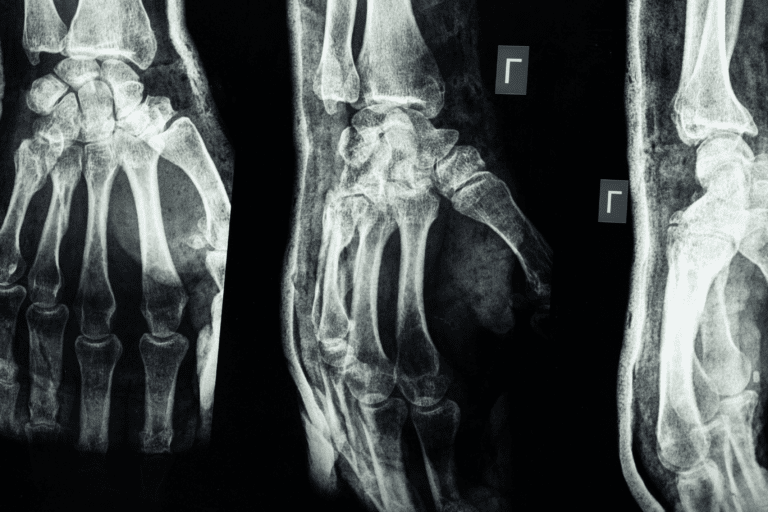The great wealth transfer is a term used to describe the transfer of wealth from Baby Boomers and the Silent Generation to their heirs—and it’s happening now.
Considered the greatest (and wealthiest) generation of all time, Baby Boomers born between 1946 and 1964 enjoyed a number of financial advantages over previous generations, ranging from affordable housing and college education to stock market gains, corporate equities, mutual fund shares and other upward business growth, and real estate investment opportunities that have left them holding massive amounts of wealth—up to $68 trillion, by some estimates—waiting to pass down significant wealth to future generations.
While the theory goes that the younger generation of Millenials, arguably the poorest generation in modern history, stand to gain a windfall of inheritance over the next two decades, the reality isn’t quite so simple. The great wealth transfer may only favor a small percentage of Millenials, further dividing the haves from the have-nots. And some financial experts predict Baby Boomers will skip the Millennials altogether, instead passing down generational wealth through grandchildren or opting to donate to charities and social causes.
Regardless of how the great wealth transfer happens, there’s one beneficiary guaranteed to profit: Uncle Sam. Here’s what you need to know about taxes and protecting your wealth, whether you’re the one giving it or the one inheriting it.

Taxes and the Greatest Transfer of Wealth in History
When it comes to taxing inherited wealth, how it’s being transferred is perhaps the biggest factor in determining how it gets taxed. And there are myriad ways to transfer wealth, including various types of life insurance policies, directly from a bank savings or checking account, through property, stock ownership, retirement plans like Roth IRAs and 401(k)s, as a gift, or via trusts.
Regardless of the method of wealth transfer, estates totaling $12.06 million or more will face an estate tax, as of 2022. Then there’s state taxes to consider. Amounts vary, but in some states as little as $1 million will incur an estate tax bill, inheritance tax bill, or both.
Life Insurance Policy
Inheriting substantial wealth, through a life insurance policy is one of the most common ways money will be passed down in the great wealth transfer. Provided the estate doesn’t exceed tax thresholds, the death benefit is tax-free to the beneficiary. But not all life insurance policies guarantee a payout. Term life insurance only pays a death benefit if the policyholder passes away within the specified insurance term. Permanent insurance policies guarantee payouts, regardless of when the policyholder passes away, provided premiums are paid. What’s more, whole life insurance policies from mutual insurance companies earn a guaranteed rate of return and non-guaranteed dividends, which can increase the value of the policy over time.
Bank Account
Bank accounts are terrible places to grow wealth, though safe places to store it. That said, nearly everyone has some money in bank savings or checking accounts when they pass away. Like a life insurance policy, money from bank accounts can be inherited tax-free.
Property
Baby Boomers own more real estate wealth than any modern generation, so it follows that transferring ownership of property will be a primary way in which they pass down assets during the great wealth transfer. Provided it doesn’t trigger an estate or inheritance tax, property can be transferred tax-free, but property taxes will be the responsibility of the new owner. Should the property be sold, any gains will be subject to capital gains tax. And if the property generates income in perpetuity, like a rental property, it’s subject to additional taxation.
Stock
Like property, stocks can be transferred tax-free, but if they’re sold any gains will be subject to capital gains tax.

Roth IRA
Because Roth IRAs are paid for with after-tax dollars, beneficiaries can take distributions tax-free, provided the account was held by the benefactor for at least 5 years. However, if the account was held for less than 5 years, a beneficiary will owe income taxes on any amount that exceeds contributions paid into the account. What’s more, beneficiaries must empty the account within 10 years, per the SECURE Act, effective as of January 1, 2020. Any funds remaining may be heavily taxed by the IRS. But there are a few exceptions. The 10-year rule doesn’t apply to:
- A spouse
- A chronically ill or disabled beneficiary
- A minor child
- A beneficiary not more than 10 years younger than the benefactor
Qualified IRA or 401(k)
These kinds of retirement accounts are different from a Roth IRA in that they’re tax-deferred. Beneficiaries of IRAs or 401(k)s will owe income taxes on any distributions, regardless of how long the benefactor owned the account or contributions made. And the 10-year SECURE Act rule still applies. Any funds remaining in a qualified IRA or 401(k) after 10 years may be subject to a tax penalty, up to 50%.
Gift
Financial gifts are a type of wealth transfer that occurs when a benefactor is still living. They can include money or property, but gifts exceeding $16,000 for 2022 will be hit with a tax bill from the IRS. In this case, the person giving the gift is responsible for paying the tax, not the person receiving it. And the $16,000 limit is on a per-recipient basis, meaning an individual could give financial gifts to multiple people, provided each person doesn’t receive more than the annual gift tax threshold.
Trust
Trusts, in and of themselves, don’t hold value as financial assets. Rather, they’re legally binding fiduciary agreements that allow a third party to manage assets on behalf of benefactors and beneficiaries. Trusts are essential to protecting assets in the great wealth transfer because they receive favorable treatment when it comes to estate and inheritance taxes. Life insurance policies and property are the most common assets held in a trust.
More Ways to Grow and Protect Wealth During the Greatest Wealth Transfer
While taxes play a major role in how much wealth will actually be transferred to younger generations over the next 25 years, there are other factors in play. Inflation is at a 40-year high, impacting spending power, and the post-COVID economy is predicted to see an increase in consumer spending. Then there are the markets to consider. Fluctuating valuations in stocks, bonds and other-market based accounts expose wealth to unpredictable volatility, yet next to real estate, these investments hold a vast amount of Boomer wealth.
Whether you’re in retirement and finalizing estate plans for transferring wealth or preparing to receive a financial windfall, there are a number of wealth building strategies you can adopt now to maximize your assets. From rethinking your budget to divesting from Wall Street, solidifying your financial foundation to utilizing the cash value of whole life insurance, an expert Wealth Strategist at Paradigm Life can help you make the most of the great wealth transfer with proven strategies that fit your financial goals.
Whether you’re in retirement and finalizing estate plans for transferring wealth or preparing to receive a financial windfall, there are a number of wealth building strategies you can adopt now to maximize your assets. From rethinking your budget to divesting from Wall Street, solidifying your financial foundation to utilizing the cash value of whole life insurance, an expert Wealth Strategist at Paradigm Life can help you make the most of the great wealth transfer with proven strategies that fit your financial goals.








